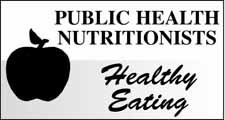There is a link between nutrition and brain power. Researchers are learning that certain foods and their nutrients can help build better brains and help boost the brain function of children in school. The basic ways to boost brain function include the following:
Count on breakfast to kick-start the brain. Memory and school performance suffer when children skip their morning meal. Whole grain breakfast cereals or toast are good sources of energy for the brain. Serve with protein foods like peanut butter, eggs, milk, yogurt or cheese to help that energy last.
Count on the iron in foods like whole grains, lean meat, pasta and legumes to prevent anemia. An adequate iron level is critical to being able to concentrate and learn. Iron transports oxygen to the brain and helps a child pay attention. Studies suggest that children with mild to moderate iron deficiency, even without anemia, show poor attentiveness and memory. They also have more difficulty in reading and vocabulary. Children can become iron deficient after dealing with infections or illness that affects their appetites over an extended period of time. Allergies to foods like milk or wheat can damage the gut and cause anemia. Iron status can also be low during periods of rapid growth. Girls in their preteens as well as teenage boys can become anemic during this time.
Count on fish for healthy fats. Fish deserves its reputation as a brain food. Oily fish like sardines, salmon, tuna and mackerel are rich sources of essential fats needed by the brain. Be sure to include fish as a regular part of your menu.
Count on vegetables and fruit that are rich in colour. Dark coloured vegetables and fruit can boost the intake of plant chemicals, such as antioxidants, that help the brain to work better. Blueberries, tomatoes, spinach, kale, broccoli, carrots, pumpkin and squash are foods that are rich in colour and nutrients. Start your family's day in a colourful way by serving saskatoons, oranges, strawberries or even canned peach slices.
Cut back on fatty foods like sausages, hotdogs, fried foods and fast foods. Foods rich in saturated fat and trans-fats can actually decrease memory and learning. These foods may provide quick and easy calories but they can slow down brain function.
Canada's Food Guide can help you to plan meals and snacks that will boost your child's level of physical and emotional energy to learn. Free copies can be obtained from your local Public Health Office.
Written by the Public Health Nutritionists of Saskatchewan and supported by Public Health, Sunrise Health Region.
If you have any comments or questions please contact: Heather Torrie, Public Health Nutritionist, Sunrise Health Region, 150 Independent Street, Yorkton, Sask. S3N 0S7 or phone: 786-0600.




